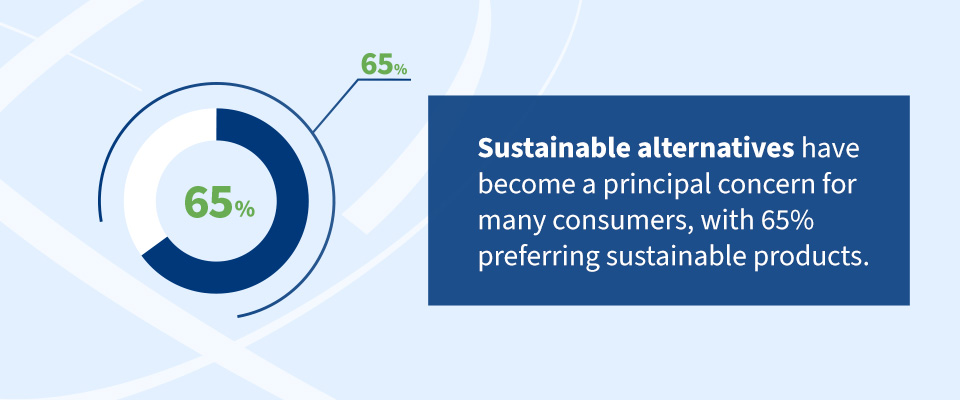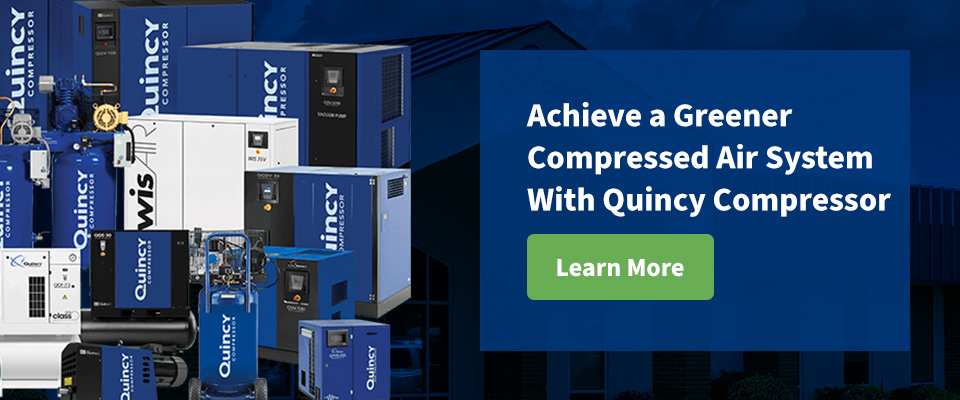
Climate change is an issue affecting every industry. Government and industry regulations force many organizations to reexamine their power sources and look for sustainable alternatives to traditional fossil fuels. Manufacturing applications use considerable power to meet consumer demand, making renewable energy an important consideration for many manufacturing organizations.
Renewable energy makes up 13% of the total energy consumption in the U.S., and this number continues to rise as more businesses realize the benefits. The use of renewable energy in manufacturing is fast becoming a necessity rather than a luxury. Understanding the advantages of renewable energy is essential to making informed business decisions.
What Is Renewable Energy in the Manufacturing Industry?
Renewable or sustainable energy is any type that can meet demands without exhausting finite natural resources. This energy is self-replenishing, reducing reliance on energy that is generated from fossil fuels like gas, oil, coal and petroleum. Common sources of renewable energy include:
- Solar
- Wind
- Tidal
- Hydroelectric
- Biomass
- Geothermal
Manufacturing requires immense energy usage. Many industry leaders are embracing the concept of a circular economy, investing millions to replace unsustainable raw materials with green alternatives. To remain competitive in the wake of the U.S. government’s goal for net-zero emissions by 2050, organizations in the manufacturing industry are exploring green energy alternatives.
The Importance of Renewable Energy in Manufacturing
Manufacturing is critical for the world’s economy and responsible for about 74% of total industrial energy consumption. Manufacturers must generate large amounts of power to function. Reducing the impact of these activities on the environment is a profound responsibility, and renewable energy provides a sustainable alternative that allows manufacturing organizations to limit their impact and meet consumer demands.
Here are the five principal benefits of renewable energy in the manufacturing industry:
- Energy independence: When a country can produce enough energy to meet its demands, it’s considered energy-independent — a critical goal for many nations. Energy independence provides the economic freedom to delve deeper into the renewable energy sector.
- Environmental impact: One of the main advantages of renewable energy is its potential to impact the environment positively. Burning fossil fuels accounts for 73% of the total greenhouse gas emissions in the U.S., which must be reduced by half by 2030. Renewable energy is more than beneficial for the environment — it’s non-negotiable.
- Economic growth: As the demand for renewable energy increases, the sector requires more people to produce and maintain it, which means more job opportunities.
- Local support: Renewable energy has a positive impact on local communities, ensuring a reliable energy supply and invigorating local economies through job creation.
- Climate change: Reducing carbon emissions and promoting sustainable energy solutions allows us to combat the effects of climate change, preserving the planet for future generations.
10 Advantages of Renewable Energy for Manufacturing Organizations
Implementing renewable energy solutions does involve an upfront investment for individual manufacturing organizations. Even so, sustainable energy has many advantages for manufacturing businesses, including:
1. Efficient Raw Material Processing
Transforming raw materials into usable products is one of the most energy-intensive manufacturing activities. Many applications require considerable heat and compressed air. Powering these operations with renewable energy alternatives reduces the economic and environmental burden of raw material processing.
2. Reduced Energy Costs
Using fossil fuel-based power sources is becoming increasingly expensive as these resources become scarce. Investing in renewable power sources could help stabilize your energy costs. Since you’re creating your energy instead of competing for limited resources, sustainable energy often leads to cost savings for your organization.
3. Limited Service Disruptions
Successful manufacturing operations depend on reliable energy. Losing access to power can result in considerable downtime, an inability to fulfill commitments and even a loss of contracts. Bad weather and grid instability can lead to a loss of power, leaving you unable to operate and losing money.
Many renewable power sources depend on the weather, but the energy they create is more stable and easily transferred than traditional power sources. Renewable energy infrastructure ensures that if one system element goes down, the others can pick up the slack, resulting in your business staying open regardless of outside interference.
4. Positive Return on Investment
A positive return is critical for any business investment. Adopting sustainable energy requires a sizable investment now but offers a significant return. In addition to reduced energy bills, you won’t have to compete with escalating prices as fossil fuels become scarce.
5. Enhanced Marketing Approach
Any business must continue to refine its offerings to meet ever-changing consumer demands. Sustainable alternatives have become a principal concern for many consumers, with 65% preferring sustainable products. Creating a marketing strategy that appeals to the majority of your customer base is vital, and showing them you’ve made the change to renewable energy can help create loyal, long-term relationships.
6. Elevated Brand Reputation
The industrial sector is one of the most competitive. As people continue to make more sustainable choices regarding what they buy, companies that rely on traditional energy alternatives will start falling behind. Switching to renewable energy shows your customers and stakeholders that you’re taking a proactive approach to environmental issues, which can support a more positive brand reputation.
7. Reduced Emissions
Using fossil fuels contributes to climate change, which has severe consequences for the environment and future generations. Although some renewable energy installation and creation processes still contribute to global warming, the effects are minimal compared to fossil fuels, and some produce no emissions. Switching to renewable energy allows your organization to move forward with confidence that you’re taking proactive steps to protect the planet.
8. Boost in Employment and Retention of Top Talent
Like consumers, employees are making educated choices about the environmental impact of their work. When top talents evaluate potential employers, 69% consider the environmental record to be a factor. Investing in renewable energy can help you attract and retain top talent that’s invested in making a meaningful difference.
9. Improved Community Health
Manufacturers are responsible for how their choices affect the surrounding community. Manufacturing processes reliant on traditional energy can negatively impact the quality of life in the area. Renewable energy alternatives can achieve the opposite, contributing to clean air and eliminating potentially dangerous chemicals from the air surrounding your location.
10. Minimized Risk
Renewable energy is more cost-effective to maintain than burning fossil fuels. It also reduces risk, since you no longer need to burn highly flammable resources. The technology also requires less maintenance. For example, solar panels and wind turbines have fewer moving parts, reducing maintenance costs and expensive downtime.
Achieve a Greener Compressed Air System With Quincy Compressor
Switching to renewable power sources is one of many actions your organization can take to reduce emissions and promote sustainable manufacturing practices. Compressed air systems are an integral part of many operations — and an opportunity to go green. Quincy Compressor can help you elevate air compressor efficiency and start the process of transitioning to more sustainable alternatives.
Schedule an energy audit today to gain access to our Efficiency Quotient (EQ) process, identifying energy waste within your system and presenting actionable insights you can use to transform your operations. Contact us to learn more about air compressor efficiency.



